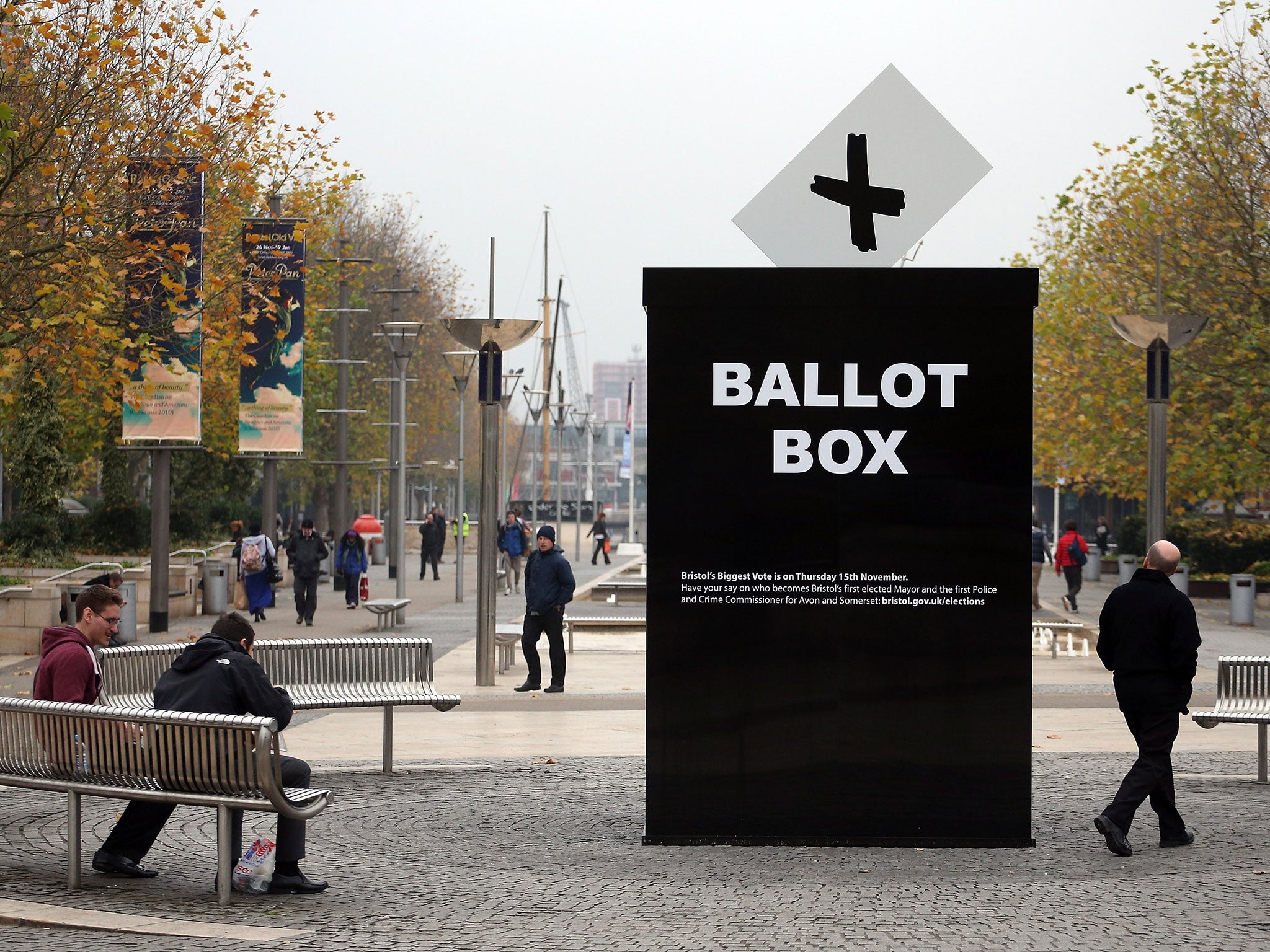Tactical voting surged in general election as voters tried to ‘game’ system, research finds
Voters switched allegiance at unprecedented rate in 2017 general election

Your support helps us to tell the story
From reproductive rights to climate change to Big Tech, The Independent is on the ground when the story is developing. Whether it's investigating the financials of Elon Musk's pro-Trump PAC or producing our latest documentary, 'The A Word', which shines a light on the American women fighting for reproductive rights, we know how important it is to parse out the facts from the messaging.
At such a critical moment in US history, we need reporters on the ground. Your donation allows us to keep sending journalists to speak to both sides of the story.
The Independent is trusted by Americans across the entire political spectrum. And unlike many other quality news outlets, we choose not to lock Americans out of our reporting and analysis with paywalls. We believe quality journalism should be available to everyone, paid for by those who can afford it.
Your support makes all the difference.Voters switched party allegiances at unprecedented rates in the general election as they tried to game the failing electoral system, according to voting reform campaigners.
Elections are now more like lottery than a real choice with 22 million votes cast in June having no impact on the result, the Electoral Reform Society (ERS) found.
It branded the June vote the “hold your nose” election after an estimated 6.5 million people made tactical decisions and said the Conservatives could have won a majority if just 0.0016 per cent of voters had chosen differently.
The first-past-the-post system is exaggerating divisions because of the huge discrepancy in the number of votes cast in an area for a party and the number of seats it wins and a new system must now be introduced, the ERS said.
Labour won 29% of votes cast in the South East but got just 10% of seats, while Tories won 34% of the North East but returned just 9 per cent of seats, according to its research.
ERS chief executive Darren Hughes said: “For the third time in a row, Westminster's voting system has failed to do what it says on the tin - produce a strong and stable government.
“June's election has shown first-past-the-post is unable to cope with people's changing voting habits - forcing citizens and parties to try and game the system.
“With an estimated 6.5 million people holding their nose at the ballot box, voters have been denied real choice and representation.
“This surge in tactical voting - double the rate of 2015 - meant voters shifted their party allegiances at unprecedented rates, with the second highest level of voter volatility since the inter-war years.
“A system designed for two parties cannot accommodate these complex electoral swings.
“In the nations and regions of the UK, elections now feel more like lottery than a real choice.
“As we've shown, tiny shifts in the vote result in drastically different outcomes. Having results hinge on a few hundred voters is no way to run a modern democracy.
“The vast majority of votes are going to waste, with millions still stuck in the electoral black hole of winner-takes-all.”
The report highlighted the huge fluctuations in results between the 2015 and 2017 general elections.
A 43.9 per cent increase in the SNP's vote share in Glasgow North East recorded two years ago switched to a 9.2 per cent hike for Labour in June.
The ERS called for a new system to be introduced to stop votes being wasted or voters being forced into tactical decisions.
Under its assessment of the Alternative Vote (AV), which was rejected by voters in a 2011 referendum, Labour would have been chief beneficiaries in 2017, gaining 24 seats while the Conservatives would have doubled their majority from 12 to 24 in 2015.
Mr Hughes said: “The real question for our politicians is this: If the two main parties can gain over 80% of the vote for the first time in decades, in a system designed for two parties, and yet both still lose - when will they show the leadership the country so desperately needs and fix our voting system?”
A Government spokeswoman said: “We are pleased the Electoral Commission's report into the 2017 General Election found the elections were well run.
“First past the post is a voting system that offers a robust method of electing MPs.
“A referendum on changing the voting system for general elections was held in 2011 and the public voted overwhelmingly in favour of keeping the first-past-the-post system.
“This Government has no plans to change that position.”
Press Association
Join our commenting forum
Join thought-provoking conversations, follow other Independent readers and see their replies
Comments